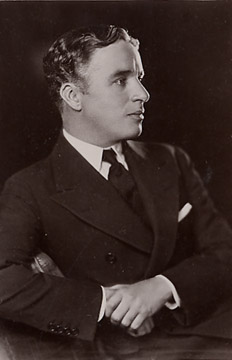Los Angeles, CA– The other day my dad told me that he remembered that Charlie Chaplin (pictured) had been a victim of paternity fraud during the 1940s. We looked it up and sure enough, it was true. According to Wikipedia:
The other day my dad told me that he remembered that Charlie Chaplin (pictured) had been a victim of paternity fraud during the 1940s. We looked it up and sure enough, it was true. According to Wikipedia:
“Chaplin had a brief affair with Joan Barry (1920-1996) in 1942, whom he was considering for a starring role in a proposed film, but the relationship ended when she began harassing him and displaying signs of severe mental illness (not unlike his mother).
“Chaplin’s brief involvement with Barry proved to be a nightmare for him. After having a child, she filed a paternity suit against him in 1943. Although blood tests proved Chaplin was not the father of Barry’s child, Barry’s attorney, Joseph Scott, convinced the court that the tests were inadmissible as evidence, and Chaplin was ordered to support the child.
“The injustice of the ruling later led to a change in California law to allow blood tests as evidence. Federal prosecutors also brought Mann Act charges against Chaplin related to Barry in 1944, of which he was acquitted. Chaplin’s public image in America was gravely damaged by these sensational trials.”
The Mann Act itself was often employed against men, quite unfairly. To learn more, see below or click here.
The Mann Act (via Wikipedia)
The United States White-Slave Traffic Act of 1910 prohibited so-called white slavery. It also banned the interstate transport of females for “immoral purposes.’ Its primary stated intent was to address prostitution, immorality, and human trafficking. The act is better known as the Mann Act, after James Robert Mann, an American lawmaker.
The first person prosecuted under the act was black heavyweight boxing champion Jack Johnson, who encouraged a white woman, Belle Schreiber, to leave a brothel and travel with him to another state. Though he later married the girl, and took her away from a brothel, he was nevertheless prosecuted and sentenced to a year in prison.
Thomas’s academic career at the University of Chicago was irreversibly damaged after he was arrested under the act when caught in the company of one Mrs Granger, the wife of an army officer with the American forces in France, although he was later acquitted in court.
British film actor Charles Chaplin was prosecuted in 1944 by Federal authorities for Mann Act charges related to his involvement with actress Joan Barry. Chaplin was acquitted of the charges, but the trial permanently damaged his public image in the US, and contributed to his departure for Switzerland in the early 1950s.
Canadian author Elizabeth Smart describes being arrested under the Mann Act in 1940 when crossing a state border with her lover, the British poet George Barker, in her (partly fictionalised) book By Grand Central Station I Sat Down and Wept. She memorably intertwines the callous police interrogation aimed at arresting her under this law with quotations about love from the Song of Songs.
In the late 1950s, Kid Cann, a notorious organized crime figure from Minneapolis, Minnesota, was prosecuted and convicted under the Mann Act after transporting a prostitute from Chicago to Minnesota. Although his conviction was later overturned on appeal, Kid Cann was later prosecuted and convicted of offering a $25,000 bribe to a juror at his trial under the Mann Act.